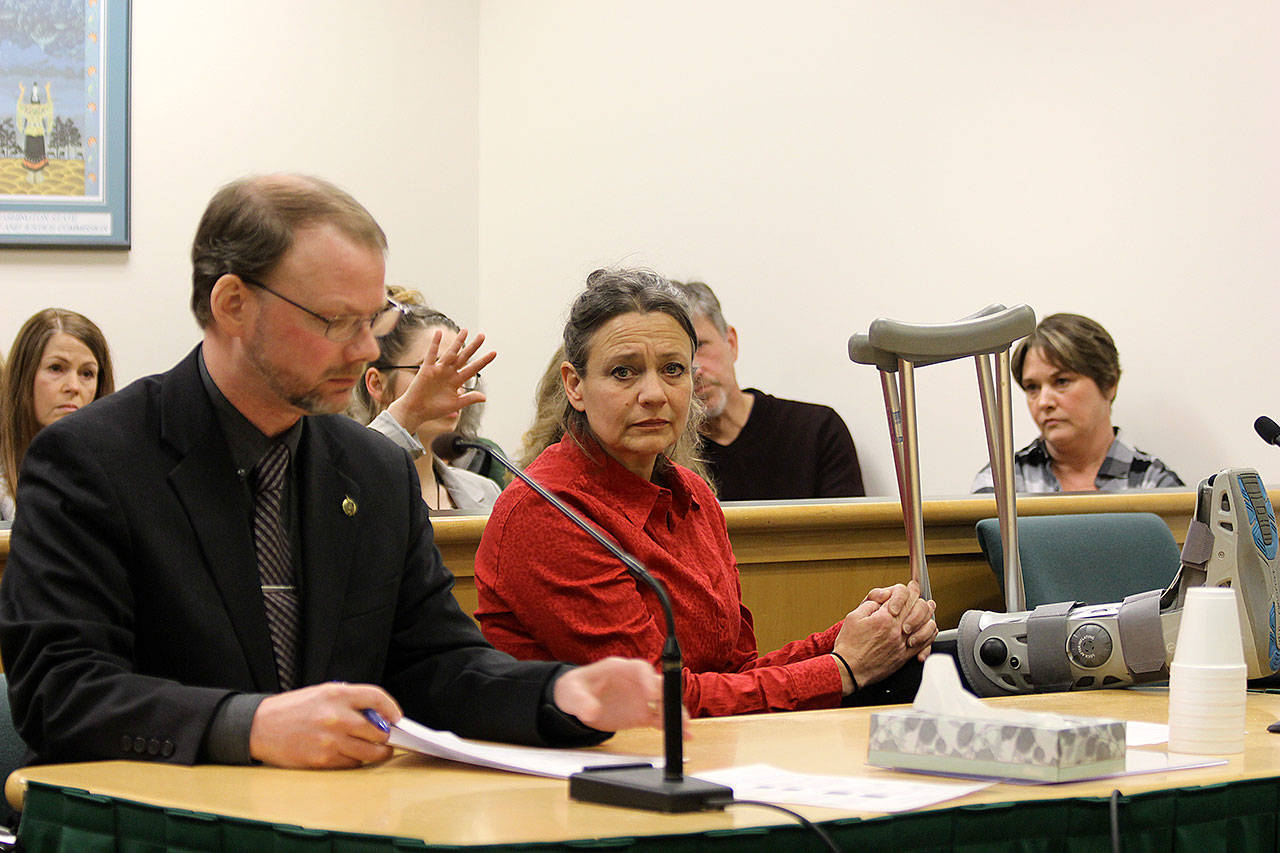Four years after her husband, Timothy Keil, was killed by a drunk driver on Whidbey, Mary Jo Keil quietly wept in court.
Following a protracted and unusual legal process, Michelle D. Nichols, the woman who caused the fatal crash that killed Keil’s husband, was finally sentenced to 10 years and six months in prison for the crime.
“They were tears of happiness that this process is finally over. It’s a huge relief,” Mary Jo Keil said.
Still, the pain remains.
“Nothing is ever going to bring Tim back,” she said. “It doesn’t bring closure. It’s just part of the process.”
The couple’s son, Mike Padgett, and about a dozen South Whidbey community members attended the hearing to support Mary Jo Keil and see that justice was done.
The brief hearing’s purpose was to lift a stay on a sentence Nichols received years ago.
Afterward, Mary Jo Keil said she is thankful for all the family, friends and community members who have supported her. She said her late husband was a “kind and caring man” and had many friends on Whidbey Island.
“They held me up during the whole process of hearing after hearing after hearing,” she said.
Nichols came into court on crutches and a medical boot on one foot, apparently from injuries sustained in the fatal collision. She spoke at the original sentencing hearing, but Island County Superior Court Judge Vickie Churchill gave her another chance to speak Monday; she declined.
The fatal crash occurred just after 8:30 p.m. on Valentine’s Day 2015. Timothy Kiel was driving a 1993 Honda Accord on State Highway 525. Nichols was driving a 1988 Ford van in the opposing direction. The van drifted to the right and struck a guardrail. Nichols over-corrected the vehicle, swerving the van across the center line and into the opposing lane of traffic, striking Keil’s car head on.
Keil died at the scene.
Prosecutors charged Nichols with vehicular homicide. During pre-trial hearings, it became clear that the crux of the case would concern whether state troopers had probable cause to take a sample of Nichols’ blood for testing when she was unconscious and being prepped for surgery. Her blood-alcohol level was 0.11 percent, more than the state 0.08 limit, nearly four hours after the crash and following a blood transfusion.
Churchill ruled that state troopers had the requisite probable cause to take her blood and that exigent circumstances were sufficient to allow a warrantless blood draw; it was a decision that would almost certainly be appealed if Nichols was convicted, so the prosecution and defense came up with a unique plea bargain.
Both sides agreed to a bench trial with the understanding that a sentence, if any, would be stayed until the appeals process was over. Under a bench trial, a judge, instead of a jury hears the evidence and comes to a verdict.
Mary Jo Keil said the family agreed to the plan because they wanted to avoid a trial, which would be hard on loved ones and had the possibility of an acquittal.
Churchill found Nichols guilty of the “DUI prong” of the vehicular homicide statute and sentenced her to 126 months in prison, the maximum. The sentence was immediately stayed.
Nichols appealed to the state Court of Appeals and, after several delays and oral arguments, the court affirmed Churchill’s rulings. She asked the state Supreme Court to look at the case, but it declined. The options for appeals came to an end Feb. 1 after the appeals court issued a mandate.
Padgett said the long legal process has been tough, but “it is what it is.”
“She was given the maximum sentence,” he said. “If I could be grateful for anything, I was grateful for that.”
Mary Jo Keil said she moved from Whidbey Island a couple years ago to live closer to family, but also because she couldn’t bear to live on the island without her husband.
She feels that the long delay in justice didn’t help anyone.
“If she had admitted the guilt in the beginning,” she said, referring to Nichols, “she would have three to four years of the sentence under her belt already.”



